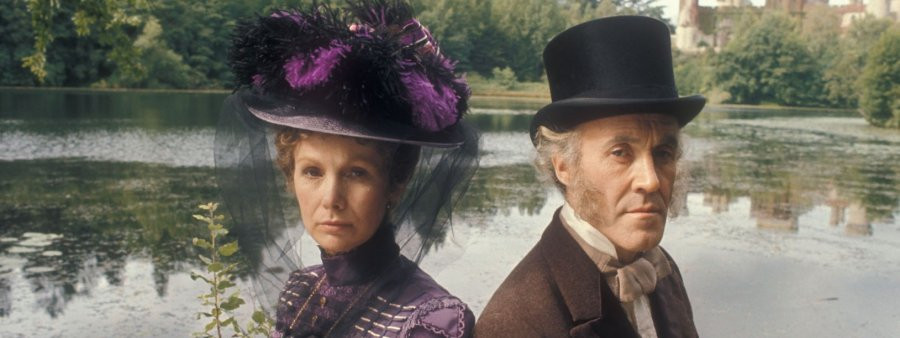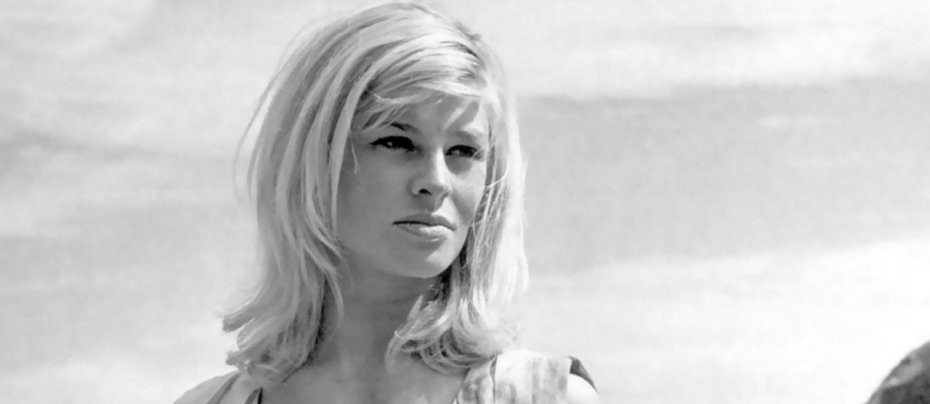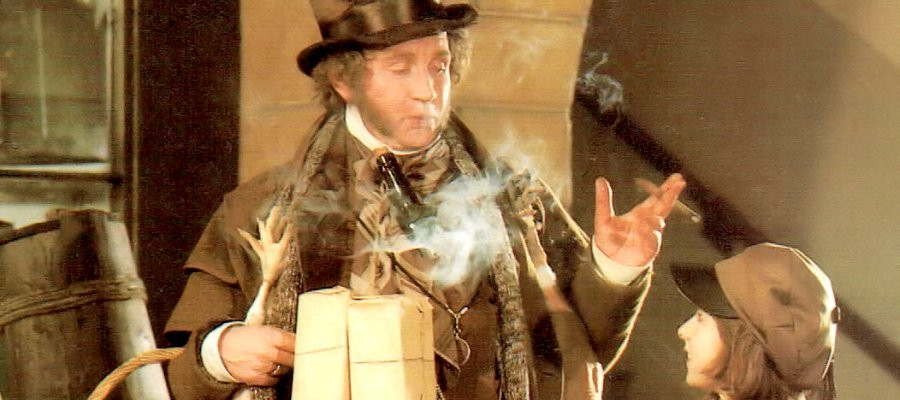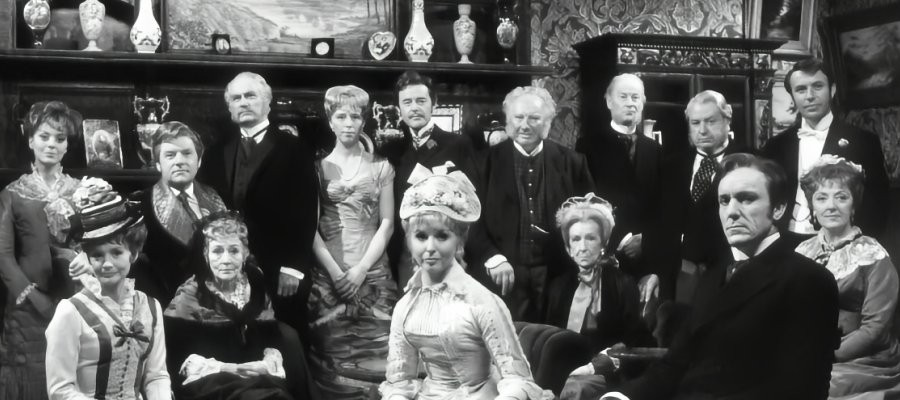
The Pallisers
1974 - United KingdomThe Pallisers is Simon Raven's dramatisation for television of six great novels by Anthony Trollope - the finest sequence of fiction ever to be based on British Parliamentary life. Through the saga we follow the fortunes of one aristocratic family, the Pallisers, a political dynasty imagined by Trollope as they move through high society in the heyday of Queen Victoria's reign. In their succeeding generations the men and women of the Palliser family taste wealth, passion, power and success - one of them even becomes Prime Minister. They also experience intrigue, danger, scandal and bitter failure. (1)
Anthony Trollope was born in London in 1815 to a father who was a failed lawyer. Although he went to both Harrow and Winchester school it was thanks to his mother who supported the family through her career as an author that Trollope got a decent education. But suffering from poverty the family moved to Belgium where Trollope's father died. Returning to London he secured a job with the Post Office undertaking important postal missions to Egypt, the West Indies and the United States. By the end of his career he had become a successful and important civil servant and among his achievements in Great Britain was the introduction of the pillarbox for the posting and collection of letters. In 1868 he unsuccessfully stood for Parliament as a Liberal declaring that a seat in Parliament ought to be "the highest object of ambition to every educated Englishman."
His literary career began in 1847 and through the 1850s and 60s he developed a technique of interconnecting his characters throughout each of the five novels that became known as the 'Barsetshire' series. This was realised successfully in his second series known as the 'Political' novels published between 1864 and 1880 and as a result he is recognised as the author who established the novel-sequence in English fiction. Through the characters in the 'Political' novels Trollope was able to express his own political views.
The Pallisers begins with the story of the flighty Lady Glencora (Susan Hampshire) who is betrothed to the cold and snooty Plantagenet Palliser (Philip Latham) at the behest of his uncle the Duke of Ommium (Roland Culver), whose title Plantaganet will inherit. The marriage goes ahead in spite of Lady Glencora's love for the handsome wastrel Burgo Fitzgerald (Barry Justice). Palliser, aware of her love for Fitzgerald takes his wife away on an extensive foreign tour, despite the fact that he has just been offered the post of Chancellor of the Exchequer.
On the Continent the newlyweds come to a better understanding and they return to London where Glencora becomes a ruthlessly ambitious society hostess. At the same time as Plantagenet is realising his political aspirations Phineas Finn (Donal McCann), a young Irish barrister is elected to Parliament for the family seat of Loughshane. In London Phineas wins friends, is admitted to high society and falls in love with Lady Laura Standish (Anna Massey) who, as result of having to pay off the debts of her brother, Lord Chiltern (John Hallam), finds herself a woman of diminishing means. Lady Laura marries the wealthy Scottish MP, Robert Kennedy (Derek Godfrey) and Phineas is compelled to resign after a defeat on the Irish Tenant Right. Lady Laura's relationship with her husband collapses and she flees to Germany. Phineas spends Christmas with Laura only to be assaulted by Kennedy and accused of adultery. Phineas' fortunes continue to get worse and he is arrested for murder - but the Pallisers finance his defence.
The Pallisers was an ambitious project by the BBC and involved a complex plot of political manoeuvring that continually required the introduction of many characters and the exploration of their relationships with each other. On its own it might have proved difficult for the casual viewer to watch but what derailed it completely was that during its 26 episode run a BBC labour strike bought it to a complete halt. When the dispute was finally resolved the Corporation ran a repeat of five episodes to help bridge the gap and allow the production team to complete work on the final episodes. This meant that the first episode was broadcast in January but the final episode not until November. As a result the series is sadly overlooked which is a great shame because it stands as a fine example of the BBC at the height of its period costume drama period. This was acknowledged in the USA where the series won two Emmy Awards, for Outstanding Achievement in Costume Design for a Drama or Comedy Series: Raymond Hughes (costume designer) and Outstanding Art Direction or Scenic Design for a Drama Series: Tim Harvey (scenic designer). In the UK it was nominated for a single BAFTA for Best Design: Raymond Cusick and Tim Harvey. The cast included Barbara Murray, Donald Pickering, Derek Jacobi, Bryan Pringle, Penelope Keith, Anthony Ainley, Martin Jarvis, Peter Sallis, June Whitfield, Jeremy Irons and Anthony Andrews (both of whom would play the lead roles in Brideshead Revisited), Anna Carteret and Lyne Frederick.
Martin Lisemore, producer of The Pallisers wrote at the time of production: "Trollope's Palliser novels provide an enormously attractive basis for a television serial. His characters are vital and interesting; his plots are strong and entertaining and his affection for the world he has created is clearly evident. My major object has been to give The Pallisers an overall unity of style so I decided that Simon Raven should write all the episodes and only two directors should work on them [Hugh David and Ronald Wilson]. Shooting of the 26 episodes takes exactly 13 months [this written before the strike] and in that time well over 20 hours of television drama will have been completed. Trollope maintained that if he was to be remembered in the next century, it would be as a result of the Palliser novels. We hope this serialization on television will add weight to his belief."
BBC Radio 4 also adapted the Palliser novels in 12 parts in 2004 for its Classic Serial strand, and in 2008 the BBC made a press release saying that Andrew Davies was adapting the novels for a new television production, possibly to be transmitted in the soap-style format of 30-minute instalments which brought him acclaim with his BBC1 adaptation of Charles Dickens' Bleak House in 2005. Nothing has been heard of it since.
Source of reference: (1) Radio Times Special: The Pallisers - Full Guide to the BBC tv serial - BBC 1974
Seen this show? How do you rate it?
Seen this show? How do you rate it?
Published on January 17th, 2019. Written by Marc Saul (2010) Other reference: The Oxford Companion to English Literature for Television Heaven.










